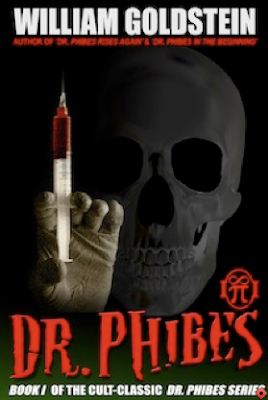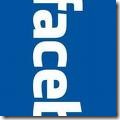Category Archives: marketing
Tips on Pitching your Manuscript
By Joe Moore
At this year’s ITW ThrillerFest VI (July 6-9) we’re once again featuring a portion of the conference called AgentFest. AgentFest is a perfect example of why ThrillerFest is and will always be held in the heart of the publishing industry, NYC. Why? Because this year, we have 60+ top agents and editors from the biggest New York houses ready to hear your pitch and find new talent. This number could not come close to being achieved in any other location or city.
We all know how important it is to prepare when pitching a manuscript to an agent, whether it’s at AgentFest or any other occasion: look professional, act professional, be able to summarize your premise in a couple of sentences, and know that not every book is right for every agent (most of the time, that’s why they say no).
But what about those things you don’t want to do; those things that could wreck you presentation or turn off the agent? Here are a few pitfalls to avoid:
Never refuse advice or feedback. Even if the agent or editor is not interested in your book, many times they will offer suggestions or advice on making it more marketable. Never have a closed mind and think that it’s your way or the highway. Professional agents know the market and are aware of what the publishing houses are looking for at any given moment. Also remember that just because an agent is not interested in your book doesn’t mean the book is not publishable. It’s just not for them.
Don’t begin your pitch by saying that “everyone loves your book. Of course they do, because everyone is probably your family and friends, and the last thing everyone wants to do is hurt your feelings. If they were completely honest with you, it would be like hitting your ego with a sledgehammer. Now on the other hand, if Dan Brown, Ken Follett or Stephenie Meyer read your manuscript and loved it, I would mention that somewhere right after "hello".
Don’t be a pest. By that I mean sending the agent multiple emails, phone calls, letters, presents, or anything else that would quickly become annoying. If the agent says no, the likelihood of you turning them around with a box of Godiva chocolates is not good. Send it to me instead.
Don’t suggest that if the agent wants to know all about you they can visit your website or blog. It doesn’t matter if Michelangelo designed your graphics, James Patterson wrote your text, and Lady Gaga composed the music for your book trailer. The agent doesn’t care. All she wants to know is: who are you, what is your idea, and can you present it in a logical, concise and professional manner.
Even if your manuscript has been rejected before, don’t volunteer that information. As far as the agent is concerned, they’re getting the first look at your idea. They’re also realistic and know it’s probably been pitched before. And the fact that you’re standing there means that if it was, it was rejected. Always remember that rejection is as much a part of the publication process as line editing or cover design. It happens to everyone. Move on.
Don’t claim that no one has ever written anything like your book before. If that’s really true, there’s probably a good reason no one has. But trust me, claiming that what you’ve written is a brand new idea is as compelling as claiming you have the winning numbers for tomorrow’s lotto. What you might want to do is suggest that you’ve completed a unique and original treatment of a well-established theme or premise. That will make sense to the agent.
Never say that your book is going to be the next blockbuster or that it should be made into a movie. The top professionals in the publishing and motion picture industries cannot predict with certainty what will be the next blockbuster or bestseller. Neither can you.
In general, always assume that an agent or editor has already heard every variation on a theme there is, because they have. Much of your success in capturing the attention of an agent is you, not your story. Be enthusiastic but not obnoxious, knowledgeable but not condescending, proud but not conceded, prepared but not pushy. And most of all, be friendly and professional. Your presentation is a foreshadowing of what it would be like to work with you. Agents don’t want to spend a year or more in a wrestling match with a jerk.
Remember that literary agents and editors are people, too. Yes, they can have a tremendous impact on your writing career, both positive and negative. But just like the rest of us, they get excited when they hear a great idea. Treat them as people, not gods.
If you practice all these tips and you have a killer idea for a book, there’s a good chance the agent will hand you her business card and ask for a partial. And if by chance, she asks for a full, go celebrate. You’ve accomplished more than most ever will.
Any other pitching tips out there?
————–
THE PHOENIX APOSTLES is now available online. In stores June 8.
“Stupid Writer Tricks”
or, “How far would you go to market your book?”
A few weeks ago, author Tawni O’Dell wrote a very funny essay about some of the, oh, let’s call them “interesting,” experiences she had when marketing her first book. The article incited a rabid response on the Sisters in Crime listserv, where the debate centered on whether or not Tawni was taken advantage of because she was female, if she was a fool to go along with the absurd things that were asked of her, or if any author (gender be damned) would do the same.
Here’s what kicked off the uproar:
Tawni O’Dell’s debut, “Back Roads” is a dark, gritty portrayal of a family in crisis told entirely in the male first-person voice of 19-year-old Harley Altmyer. Entertainment Weekly offered to write a brief piece on O’Dell to coincide with the release.
Now, you can just imagine how excited her PR team was. A feature article, including photos, in a major periodical? Barring an Oprah appearance (more on that later), it doesn’t get much better.
So here’s how it went down, in O’Dell’s own words:
I was busily signing books at a table set up in the middle of the mall when I happened to look up and saw an anxious, overcaffeinated little troupe of petite Ray-Banned androgyny and ethnic ambiguity all dressed entirely in black and all clutching cups of Dunkin’ Donuts coffee coming toward me. (We didn’t have a Starbucks.) As they did so the wide-eyed, whispering herd of extra-large Steelers sweatshirts and camouflage hunting jackets milling around me split decisively in two to let them pass. The parting of the Red Sea couldn’t have been any more dramatic.
They turned out to be my photographer, Nathan (pronounced the French way, Nat-on,) his assistant, his other assistant, a makeup artist and a stylist.
One of the assistants informed me that Nathan would like to shoot me outside in some authentic Pennsylvania woods because his favorite scenes in my book had taken place in the woods and he envisioned me there. I told the assistant to tell Nathan, who was standing right beside us but apparently didn’t like to participate in his own conversations, that it was January and it was snowing. The assistant then told me not to worry, they would keep Nathan warm.
They then loaded me into their van like I was a kidnapping victim and off we drove in search of some authentic Pennsylvania woods. We didn’t have to go far. We found some behind the mall. A bunch of my family and friends that had been in attendance at the signing also came along. Nothing in the world was going to keep them from seeing this.
Nathan was thrilled with the woods. He found his voice and began barking orders in an accent I was never able to place. It was sort of a cross between Desi Arnaz and Kazu, the meddlesome martian on the Flintstone’s.
I stood by blowing on my hands and stomping my feet to keep warm when suddenly he turned to me, eyed me up and down, and proclaimed, “We need to tease her hair. I want glitter. Lots of glitter, and the clothes will have to go.”
“You want me to be naked?” I spluttered.
“Do we have some fabric?” he went on, ignoring my question and my obvious distress. “I see swaths of tulle billowing out behind her and hanging in the tree branches like a morning mist.”
“You want me to be naked?” I repeated.
Before I could do or say anything else, I was ushered back into the van where I was stripped down to my underwear and sprayed in glitter.
When I re-emerged, my chattering entourage became deathly silent. Jaws dropped open and I heard a few gasps as I crunched barefoot through the snow, wrapped in yards of sparkling gauze, with my butt hanging out, and wondering to myself, Did John Irving ever have to do this?
Nathan positioned me and began snapping away with his camera.
“You’re a wood nymph!” he cried. “Yes, you’re a wood nymph! You’re an ethereal spirit. You’re an incarnation of the sky. You’re real yet you’re not real at all.”
So. Should O’Dell have objected? Absolutely. Can I empathize with the fact that as an overwhelmed and inexperienced young author, she participated in the shoot without thinking it through first? Certainly. Have I done things in the course of hawking my books that I regret? Without question (although nudity has never been involved. Yet.)
The sad truth is that in a time of severely limited marketing budgets, when authors are must rely largely on their own resources with very little guidance, the results can occasionally be quite ugly.
Here are some of the more bizarre and extraordinary things writers have done in an attempt to sell their books:
* In 2008, an Indonesian writer threw $10,700 in cash from an airplane to promote his book. His editor probably should have clarified that when she told him to throw his entire advance into marketing, she didn’t mean it literally.
* This past spring, the aptly named Paul Story pitched a tent outside the cottage where his book was set and camped there for two months, selling copies to passing hikers (although I believe the book was mainly about isolation, so I question how many potential buyers he actually encountered).
* Remember when someone threw a book at Obama a few weeks ago? Turns out that was no political protest, but a misguided attempt by author Michael Lohan (who I can only hope is not related to Lindsay) to promote his work. No, I’m not kidding. The best part? The Secret Service released him without pressing charges.
So…I almost shudder to ask, but where would you draw the line on promotion? (Basil, I can practically hear you sharpening your quill in the wilds of Alaska.)
Oh, and don’t feel too sorry for poor Tawni. Turns out the EW article never went to print- because Oprah called and invited O’Dell to appear on her show fully clothed.
A Rose by Any Other Name…

Marketing Recap
So the smoke has finally cleared from my latest marketing efforts for THE GATEKEEPER, and I thought I’d share a bit of what I learned.
First of all, Google Analytics is vastly superior to other stat counters. With my older one, ninety percent of the traffic sources were listed as undetermined. Not so with Google Analytics-finally I have clear information as to which links brought visitors to my site, and which didn’t.
And here’s the funny thing: I spent a significant chunk of money on blog ads, Facebook ads, and Goodreads ads this time around. Each of these generated a fair amount of clicks- but nothing even came close to what I received from random sweepstakes sites. Because I was offering a big ticket item as a prize (a MacBook Laptop computer), a lot of contest sites picked up the link. And I received hundred of hits a day from those sites, significantly more than from any other source.
The question is, are the newsletter subscribers elicited by those sites actually interested in reading the book? Although I received fewer hits from the other sites, they were geared toward a more targeted readership. So it’s tough to say which worked better. But in terms of getting the word out there about a new book, offering a major prize definitely didn’t hurt. Next time around I’ll probably stick to a shorter time frame for the ads I’m paying for, and will count on the sweepstakes sites to balance things out.
I’ve also decided to more or less avoid touring next November when RACING THE DEVIL is released. Mind you, I love meeting booksellers, and had a wonderful time visiting Seattle, Phoenix, San Diego, and LA, among other cities.
However with a mass market paperback, the reality is that most of my sales occur in big box stores, supermarkets, drugstores, airports, and newsstands. The touring is always grueling, expensive (since most of it is on my own dime), and it doesn’t have much of an impact on my overall sales. I’ll still visit a few local stores, but after seeing the results of marketing three books this way, I simply can’t justify the cost in both money and time anymore. I won’t be attending as many conferences, either, for the same reason.
Social networking: I primarily logged on to FaceBook and Twitter this time around. That investment definitely produced some sales, and based on my experience the fans those efforts yielded tended to be much more enthusiastic about me and my books. I also did an exchange with some other authors, promoting THE GATEKEEPER on their pages the days of its release. That generated a few sales, but not a significant number as far as I could determine. However it was fantastic for prompting people to attend events.
I find it frustrating that there’s no way to get ebook sales totals yet (at least according to my publisher). I suspect that those have jumped considerably now that there are more eReaders out there, especially after Amazon’s report that for the first time on Christmas Day eBook sales trumped physical books. Once again, I’ll have to wait months for my royalty statements to arrive before I have a completely accurate picture of my sales this time around. It seems a little silly to me that in a computerized age this information isn’t more widely available.
So to recap:
Google Analytics: great
Touring: not so great
Social networking: moderately helpful
Big ticket prize: definitely worth it
I’m curious to hear if other authors have a similar rundown. Or if you have any marketing questions, feel free to fire away…
The Elusive Fifty Percent
There’s an old adage in marketing: fifty percent of your advertising will work. The kicker is that  you’ll probably never know which fifty percent.
you’ll probably never know which fifty percent.
Large companies spend a lot of time and money trying to figure out which of their campaigns succeeded through surveys. But the little people (myself included) don’t have access to that option.
Which leads me to this week’s conundrum: trying to figure out how to divide my marketing money for The Gatekeeper. I would hate to eliminate an effort that made a difference last time- the trouble is, I have no idea which aspect of my marketing campaign impacted sales.
In an effort to narrow it down, I asked for help from the MIRA marketing team. Was there anywhere in particular where Boneyard posted more sales? In the Northeast, perhaps, or even in specific stores and chains?
Nope, they said. At least, not as far as they could determine- the best information they had to go on (which, as we’ve discussed in earlier posts, is limited at best) came from Bookscan, and the numbers appeared to be divided equally nationwide.
For other products, there are more options. You could try online ads one month, then print ads the next: if your sales showed more of a bump in the first month, the next time around you could focus more energy online.
Unfortunately, authors don’t have that luxury. Our books have a very limited shelf life. At least with my publisher, the first six weeks count most. Just one month after The Gatekeeper’s release date, many of the copies will already have been taken off the shelves. Hardcovers and trade paperbacks hang in there a bit longer, but for all of us, the next wave of releases knock us off the front racks and back to the stacks (or, worse yet, to the remaindering pile).
Which means that all of my marketing efforts are focused on that six week window. Which results in a madcap book tour, and thousands of dollars scattered in a dozen different directions. Let’s call it the “buckshot” approach to book marketing – throw out everything you can afford in every direction imaginable, and keep your fingers crossed.
I know what didn’t work with my first book. A mass mailing to over a hundred bookstores, which cost a third of my budget and hours of time, most likely ended up in the trash/recycling bin at most of them. Elaine Petrocelli of Book Passage illustrated this at a conference by holding up an enormous trash can filled to the brim with promotional materials from authors and publishers. All collected in ONE WEEK.
Obviously, the next time around I skipped that option.
Even ARCs end up in stacks in the booksellers’ backrooms, most never touched by a single staff member.
Advertising online has some advantages. On sites like Facebook, you pay per click – but whether or not those clicks actually turn into sales remains a big question mark. Some people even run strange programs to make fake clicks for these, meaning that it’s super important to invest in something like click guardian to keep your finances sound. It’s a bit of a minefield otherwise, and without the backing of a big agency individual authors can really risk a sizable amount of revenue just on making sure no one abuses those adverts on the platform. This is why some people choose to use some other method to utilize this system, with places like KlientBoost and other pay per click advertising agencies that could assist your business with pay per click marketing services.
The blog tour I did last time around had an added advantage in that it cost nothing but time- a lot of it, however. By the end of the thirty stop tour, I’d written more than 33,000 words, a full third of a book. And did that help sales? Impossible to know.
I doubt I’m alone in wondering if there might not be a better way. Now that the full burden of marketing has fallen on most authors’ shoulders, couldn’t publishers help by providing more feedback on where they see sales happening? Wouldn’t it behoove them to come up with a more accurate measure than Bookscan? If I knew, for example, that a significant chink of my sales were happening in Kroger’s stores in Arkansas, I’d make a personal effort to connect with those retailers.
Anyway, that’s my rant for the day. I’ve decided to create bookmarks, chapbooks, and magnets per usual- they don’t cost much, and are easy to pass out. I’ll probably do a more limited book tour this time around, and will focus my actual tour on visiting some stores I was forced to skip last year. Aside from that, I’m still at a loss, staring at my Boneyard marketing spreadsheet, wondering what else to include and what to cut. Any and all suggestions are welcome- what’s worked for you in the past? Has anything in particular compelled you to buy a book you might not have known about otherwise?
Wagging the Dog
I recently heard from a friend who has written a number of critically acclaimed but only moderately successful standalones. Her agent is pushing for a switch to a series character. Another friend’s publisher wants him to do the opposite, abandoning a series for standalones (the Harlan Coben model). A third is working on a YA novel, since apparently that’s all that’s selling these days.
As I hung up the phone, I thought about the tail wagging the dog. The advice that’s always offered at conferences is, “Don’t try to chase trends, just write the book you want to write, as well as you can write it,” (or some variation therein).
But that’s not always possible. Everyone from agents to editors has a say in your next book. Sure, you can give them the brush off, but then there’s always the risk that they won’t be excited to shop that manuscript, or market it if it is slated for publication.
For writers, this can serve as a real wake up call, especially since occasionally the advice you’re receiving stands in direct contrast to what was offered by the same source months earlier. I might be mistaken, but at times it seems as though no one has any idea what will sell in this marketplace. I know a lot of writers who are racing around trying to figure out which project they have the best chance of selling, especially if they’re writing it on spec. Which is perfectly understandable- devoting months or years to a manuscript that doesn’t sell is incredibly disheartening (and I speak from experience). Moreover, for writers who rely entirely on their books for income, the prospect of not getting another contract is downright terrifying.
For the first time recently, I received some negative feedback on a synopsis I’d submitted for my next book. All legitimate concerns, I realized as I re-read what I’d written. However, the suggestions offered for the direction the book should take didn’t sit well with me; that wasn’t the book I wanted to write. In the end, after some brainstorming, we came up with a solution that (hopefully) makes everyone happy, but I’ll confess that I did experience a moment of panic. In the past I’ve worked as a writer for hire; most of my freelance articles were written for money, not for love of the subject matter. The thought of doing the same for a novel, committing months to a project I just wasn’t that excited to sit down and write, was nervewracking. But then again, to have that manuscript rejected would have been far worse.
~~~~~~~~~~~~~~~~~
Join us on Sunday, July 19, when Julie Kramer, thriller author of MISSING MARK and STALKING SUSAN will be our guest blogger.
Why Bother with Bookscan?
So here’s something I didn’t find out about until after my first book was published: Nielsen, the same company that ranks TV shows, is responsible for maintaining records of book sales. And, as with the TV ratings, there’s a vast disparity between what those numbers say and what the reality might be (does anyone honestly believe that many people are watching the “Ghost Whisperer?”) Among all the industry people I’ve spoken with, it’s generally acknowledged that Bookscan tends to be wildly inaccurate.
Case in point: I know for a fact that, when compared with my royalty statements, Bookscan only counts about a third of my sales (and that’s a year after the fact). Despite their claim to “provide weekly point-of-sales data with the highest possible degree of accuracy,” there are a number of sales venues they simply don’t factor in. Amazon, for example. Or Walmart. Or airports, drugstores, supermarkets; in other words, pretty much anywhere paperbacks are sold. I’ve heard that the numbers come closer with hardcovers, but with mass market paperbacks they’re way off the mark.
So why, then, do these numbers matter? For the sad truth is that they do. During my agent search, one agent looked up my Bookscan numbers right in front of me. And few people seem to know exactly how far off they are. From various editors I’ve heard that they double, triple, or even quadruple the Bookscan numbers to approximate actual sales.
In this day and age, why isn’t a better system in place? My publisher produces “velocity reports” the first six weeks of a book’s release–they know by the end of each week exactly how many copies have sold. So where do those numbers come from, and why aren’t those reported to Bookscan?
Big box stores like Barnes and Noble and Borders also know exactly how many books they’ve sold, almost on a minute to minute basis. If they stock eight copies of a book and sell five, they’ll only buy five copies of that author’s next release (or even fewer; sad but true. Which is why, as Joe noted yesterday, so many authors adopt pseudonyms these days in an effort to beat the system). So now that all of this information is computerized, why is the one “central clearinghouse” so wrong? A friend who works as an editor in Germany claims that they can get an accurate tally at the end of each and every day. Granted, Germany is a much smaller market than the U.S., but still. There has to be a better way.
Mind you, most authors don’t have access to their Bookscan numbers- publishers and distributors pay a fee for that information. I’m a big believer in transparency, and one of the most maddening aspects of being a writer is that getting a sense of where you stand is a constant uphill battle. This is why some authors become compulsive about checking their Amazon ranking, or trying to get feedback from their publisher regarding how sales are progressing. I’m not sure why that information is in short supply, but the Bookscan monopoly can’t be helping.
Coming up on Sunday, June 14, our guest blogger will be New York Times bestselling author and ITW co-president Steve Berry discussing the impact of Dan Brown’s new thriller THE LOST SYMBOL on the publishing industry.
And watch for future Sunday guest blogs from Robert Liparulo, Paul Kemprecos, Linda Fairstein, Julie Kramer, Grant Blackwood, and more.
Social Networking Showdown
At Left Coast Crime a few weeks ago, I was part of a great panel on utilizing the Internet to market your book. This is a bit of a double-edged sword: now that much of the marketing burden falls on authors’ shoulders, being able to reach people without an insanely expensive direct mailing is invaluable. However, online networking can also become a tremendous time suck, drawing valuable hours away from what writers should primarily focus on: their manuscripts. Today I’ll discuss which sites I’ve found most valuable in a head-to-head match up, as well as sharing how I stay on top of them without losing my mind.
I confess to being one of the “old people who joined up and ruined Facebook.” I now have more than a thousand friends, and probably post something to the page once or twice a week. I’m also on MySpace, but have found Facebook to be far more user-friendly to someone as technologically challenged as myself. (However, if I was working on a YA novel, MySpace would probably be where I devoted more of my focus). A couple of things to bear in mind when using these or other social networking sites:
- Public vs. Private: I keep my pages public, and will friend anyone who asks. So anything that’s truly personal, such as family photos, etc, doesn’t get posted there. And if anyone tags me or mine in such a photo, I immediately remove the tag.

- In order to maintain my sanity, I go onto each site once a week (Facebook on Mondays, MySpace on Tuesdays). That’s when I accept friends, answer emails, and respond to comments. If I stumble across an interesting article online, I have the “share on facebook” tab incorporated into my browser, which makes it oh-so-easy to post it to my page (another clear benefit of Facebook over MySpace).
- The cocktail party rule: I rarely post anything political on any of my pages. Again, this is a matter of personal preference, but I would rather discuss my books or interesting developments in publishing than who I voted for.
Shelfari vs. GoodReads
 The trick to these is joining groups that read books similar to yours. I’ve generally found Shelfari to be more useful, although I do get updates from GoodReads discussions as well. The Shelfari groups just seem to more active, especially the “Suspense/Thrillers” one, which graciously invited me to lead a discussion of Boneyard last August. Every so often I’ll remember to log in and update my home page with the books I’ve read recently.
The trick to these is joining groups that read books similar to yours. I’ve generally found Shelfari to be more useful, although I do get updates from GoodReads discussions as well. The Shelfari groups just seem to more active, especially the “Suspense/Thrillers” one, which graciously invited me to lead a discussion of Boneyard last August. Every so often I’ll remember to log in and update my home page with the books I’ve read recently.
- One caveat: if I don’t like a book, I don’t review it, period. Other authors have no problem posting negative reviews, so it’s largely a matter of personal
 preference. But I know authors whose feelings were hurt when one of their peers negatively reviewed their book on these sites, and figure it’s better to follow the, “if you can’t say something nice, don’t say anything at all” rule. The crime fiction writing community is a small one, filled with people who possess an encyclopedic knowledge base of how to kill someone and get away with it. Bear that in mind when you’re considering giving a book one star out of five.
preference. But I know authors whose feelings were hurt when one of their peers negatively reviewed their book on these sites, and figure it’s better to follow the, “if you can’t say something nice, don’t say anything at all” rule. The crime fiction writing community is a small one, filled with people who possess an encyclopedic knowledge base of how to kill someone and get away with it. Bear that in mind when you’re considering giving a book one star out of five. - I join in whenever people are discussing a book I really enjoyed, or an author whose work I admired. After all, I’m a reader as well as a writer.
- Be careful in how you participate. When someone I’ve never heard of joins one of the discussions and proceeds to blatantly flog their own work, it’s a huge turn off. Probably better not to participate than to do that. This isn’t to say that you should never mention your book- but other members will be more receptive if you’re someone they’re already familiar with.
 I’m not a big tweeter. I post links to my Kill Zone posts (and guest posts,) and occasionally link to articles or posts that I found interesting, but I simply don’t have time to announce what I had for lunch every day.
I’m not a big tweeter. I post links to my Kill Zone posts (and guest posts,) and occasionally link to articles or posts that I found interesting, but I simply don’t have time to announce what I had for lunch every day.
I know other crime fiction authors love Crimespace, but I haven’t used it much. Most of the Ning circles (and I’m part of five) don’t seem very active to me. This could be my own failing- I find them challenging to navigate, and frankly my other pages are so easier I forget about these. Same goes for Gather, Bebo, Linked In, etc. You might have better luck. If you write books with a Siamese Cat sleuth, and there’s a Siamese cat appreciation group on one of the social networks, by all means take advantage.
Newsletters:
I have a pet peeve. Say we met at a conference and chatted about marketing. I offered to continue the discussion by email. Then, I find myself getting a deluge of newsletters from you, none of which I signed up for. Or worse yet, you mined my email address from a mass email sent by a mutual friend (note: always bcc people on those emails). This has happened to me more times than I can count. DO NOT add people to your newsletter unless they have specifically asked to be included. Have a sign up sheet on your website, and make it easy for people to unsubscribe.
And that’s my two cents. So what have the rest of you found to be useful? Any tips to share?
Cara Black Grills Her Publisher
 The Kill Zone just loves it when guest bloggers visit, especially when their posts provide an inside glimpse of the industry. So when Cara Black offered to rake her publicity and marketing directors over the coals for us, we applauded her (from a safe distance). Courtesy of Cara and the lovely people at Soho Press, today we’re bringing you answers to some of the pressing questions you’ve always wanted to ask but were afraid to…
The Kill Zone just loves it when guest bloggers visit, especially when their posts provide an inside glimpse of the industry. So when Cara Black offered to rake her publicity and marketing directors over the coals for us, we applauded her (from a safe distance). Courtesy of Cara and the lovely people at Soho Press, today we’re bringing you answers to some of the pressing questions you’ve always wanted to ask but were afraid to…
Thanks for inviting me Michelle! I know the most important thing is to write the best book you can. Then rewrite, rewrite, rewrite as Voltaire said. But after the real work is done and the manuscript has been accepted, copy edited, and slated for publication, what happens after that? I’ve often wondered, and have frequently been asked the same question at conferences. So I thought I’d ask the experts, in this case Soho Press, who publish wonderful books (and mine, too).
I love my publisher and I know they share the love. We’ve been together for nine books over ten years. Soho is a fiercely independent book publisher, based in New York, and their specialty is crime fiction from around the world. The Wall Street Journal has described Soho’s books as, “Some of the most exotic crime fiction in the world.”
But I thought I’d use this opportunity to rake them over the coals, grilling them about what we all want to know: how do the publicity and marketing director of a publisher—in this case mine —promote, market and sell a book? Something that, as either pre-published or published writers, we’d all like to know, right?
I think the answers and insights will prove universal and, hopefully, helpful. So now with my ninth book, Murder in the Latin Quarter, available this week—yes,  this week-I thought I’d politely ask them about what the heck it is they do. I know it’s not a fluke that Soho authors are regularly reviewed by the New York Times and interviewed on NPR. So I spoke with Sarah Reidy, Soho’s publicity director, and Ailen Lujo, their marketing director, both superstars in my book.
this week-I thought I’d politely ask them about what the heck it is they do. I know it’s not a fluke that Soho authors are regularly reviewed by the New York Times and interviewed on NPR. So I spoke with Sarah Reidy, Soho’s publicity director, and Ailen Lujo, their marketing director, both superstars in my book.
Cara Black: Can you describe a sales conference? It’s a mystery to me…who’s there? I’ve heard that the chains can decide a book cover.
Sarah Reidy: A sales conference is basically a meeting in which we (publicity, marketing, and editorial) present our upcoming list (of books) to the sales force. The sales team consists of all the wonderful people who are responsible for actually getting your book into stores. They take the information we give them and share it with Barnes & Noble, Amazon, Borders, Baker & Taylor, Ingram, and all the great indie stores out there. In terms of book jackets, that’s usually determined at pre-sales. I’ll let Ailen explain that one.
Ailen Lujo: In regard to presales: Twice a year an editor and I fly out to Minnesota where our distributor consortium is based, and we introduce our potential titles to the sales and marketing staff. In many ways this meeting is even more important than the actual sales conference because we talk about the minutest details of the book, from price and format (should we do this as an original paperback or hardcover?) to book jacket designs. If our account reps hate a jacket, we go back to the drawing board. We present titles at sales conference. We discuss titles at presales.
CB: What about blogs? Conferences? Bookstore events? How effective are each or do you recommend a combination?
SR: Oh, my. This is one of those questions that really depends on the author. I think blogs are great, and there is such a variety out there almost everyone can find a good match for him or herself. There are straight review blogs, of course, but there are also a number of blogs that do author Q&A’s, accept guest blog posts, or will post podcasts and book trailers. In addition, there are blogs that serve as extensions of “traditional” media outlets, such as Papercuts (The New York Times), Jacket Copy (Los Angeles Times), NPR.com, and Washington Post Live Online. This is a market that is constantly growing and offering more opportunities. For any author, I would recommend researching literary blogs and reading them for examples and ideas. Once you get a feel for a blog, you can start coming up with ideas about how your book could fit in.
Specialized conferences are wonderful. As Cara knows, Ailen and I are both huge fans of Bouchercon for mystery authors. It’s such a close knit community, and it feels like every attendee is there for the love of a good novel. If you are a less well-known author, I think conferences and conventions are a much better option that a traditional book tour.
Bookstore events are good in some cases, and not in others. If you’re Tori Spelling or John Grisham, you should absolutely do bookstore events. People are going to turn out to see you no matter what. You lucky son of a guns. However, if you are a debut novelist with no real connection to a location, it’s hard to turn people out for these. Instead I typically recommend doing one big event in your home town, and perhaps somewhere else where you have a large community of family and friends who will come.
You should also look into reading series. There are some great series out there that set up a night with multiple authors…often at a bar! And everyone knows that drunk people are more likely to buy books (I just made that up, but I imagine it could be true). A reading series tends to have a built-in following, so it’s a good way to expose your writing to a new group of people.
Cara here. I really appreciated Sarah and Ailen taking the time to answer questions.Hopefully this parted the mist of publishing marketing and publicity somewhat. Does this mirror some of your experiences? Or does your publisher do things differently?
Cara Black writes the award nominated Aimée Leduc Investigations set in Paris. MURDER IN THE LATIN QUARTER, the ninth book in the series, was just released and is available online and at fine bookstores everywhere. In MURDER IN THE LATIN QUARTER, Aimée travels to the Left Bank unraveling the trail of a woman who claims to be her sister, murky Haitian politics and international financial scandals that lead to murder.
~~~~~~~~~~~~~~~
CALENDAR OF UPCOMING GUESTS
Mark your calendar for the following guest bloggers at the Kill Zone:
Robert Gregory Browne, March 15
Neil Plakcy, March 22
Liz Jasper, March 29









